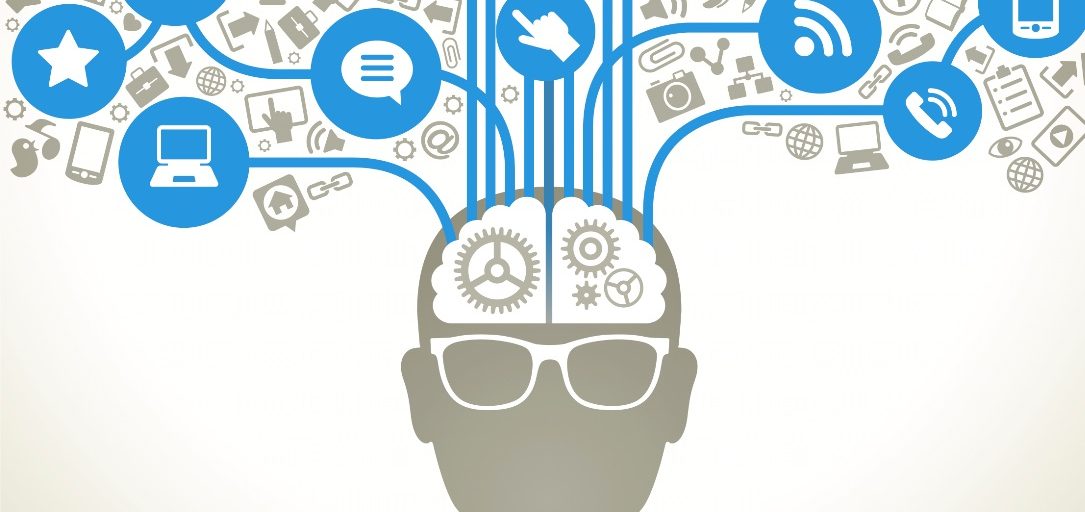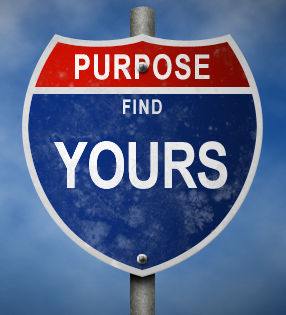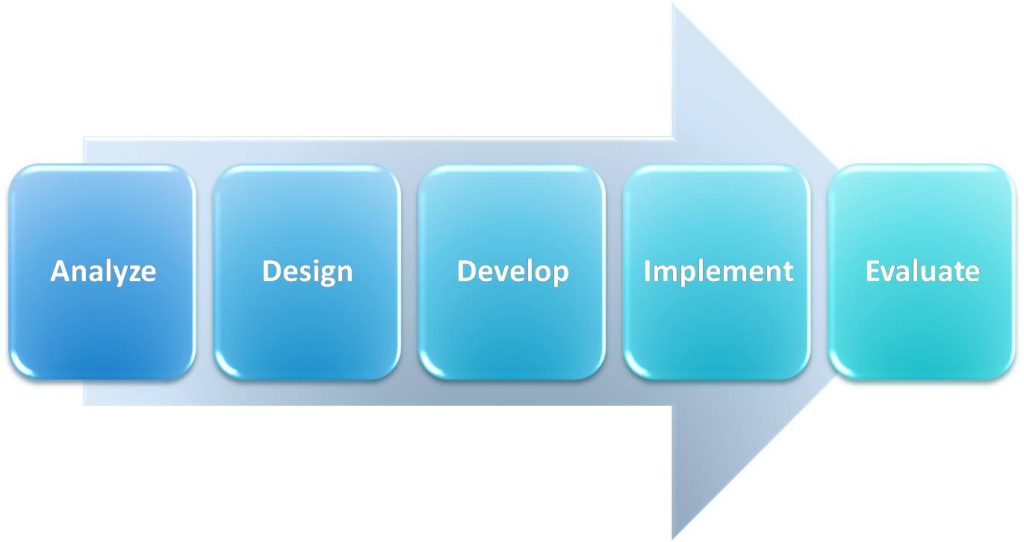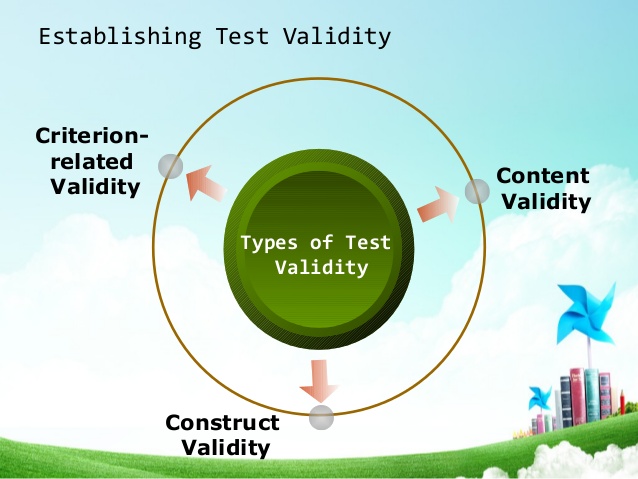The Big Picture
Back in the early seventies, when the counter-culture was just peaking, Hunter S. Thompson wrote about the failure of the American dream in the place that symbolized all its excesses – Las Vegas. The fear and loathing back then was aimed at a culture of crass commercial consumerism and a government that had lied to its citizens. Thompson’s response, like so many in the Seventies, was to drop out and get high – a classic escapist reaction when reality becomes too much to bear.
In 2014, fear and loathing went viral, spreading across America and much of the world, sparked by internecine strife and the twin evils of ISIS and Ebola, whose impact on the year far outweighed the actions of any world leader. Psychologists inform us that fear is the most volatile of all human emotions, eliciting knee-jerk reactions driven by adrenaline, not logic. We tend to do one of three things when fear strikes – flee the danger, stand and fight it or simply stand frozen, like a deer in the headlights. As we witnessed the terror of ISIS beheadings and the near-certain death sentence imposed by Ebola, humans responded just as psychologists predict. The vast majority of people decided that flight was the best remedy and did everything they could to avoid Ebola and ISIS. A few brave souls gathered the courage to confront these evils directly, either by going to fight ISIS in Iraq and Syria or going to West Africa to lend aid to the health workers struggling to control the epidemic ravaging those nations. Many more of us simply stood frozen in fear, not knowing whether to fight or to run and thus, doing neither. That’s largely been the response of governments around the world, who tried to pretend that these crises were not of their making and thus not their responsibility.
German philosopher Nietzsche was the first person to make the logical connection between fear and hate. He posited that fear leads us to hate the thing we fear. We hate it because of the threat it poses, but we also hate it for how it makes us feel about ourselves. No one is proud of fear; indeed human culture celebrates the virtues of bravery, and views cowardice as weakness. So it doesn’t take long for humans to turn fear into anger and anger into hate. Loathing needs a subject to focus upon, and in 2014 the number one subject of loathing in America was Obama – anyone named Obama. Even his daughters did not escape the hate machine, coming in for criticism for their choice of outfits at a White House Thanksgiving event. (Exactly how should teens dress for a Presidential Turkey Pardon anyway? Emily Post, where are you when we need you?) The Republican Party galvanized the wave of fear and loathing all the way to a victory in the congressional elections by following a simple formula: blame the public’s fears on the person everyone has been taught to hate – President Obama. So unpopular is he in the Deep White South that his name is used as an epithet instead of the unholy act of taking the Lord’s name in vain. Even within his own party, Democratic candidates did not want to be seen with him on the campaign trail. Six years into his presidency, Obama has become a lightning rod for critics on both the right and the left. The left complains that his domestic spying and endless war on Islamist extremists are continuing the failed policies of Bush. The right blames him for leaving Iraq, failing to invade Syria and Iran and thus leading to the rise of ISIS. They even blame him for bringing Ebola to America. After all, Obama is from Africa and Ebola is from Africa, ergo Obama must be responsible for Ebola. (For my psychic readers, here’s the clincher: both Obama and Ebola are 5 letter words consisting of 3 vowels and 2 consonants. Coincidence? Hardly!)
The fears of an Ebola epidemic in America are overblown, hyped by media hysteria and political demagogues. The reality is that a mere handful of people contracted Ebola in the U.S. and only two died. While the disease has ravaged West African nations who lack the resources to combat it, in America it has been contained after the bungling of the first case in Dallas. Indeed, the kind of fear on display at the height of the panic bordered on paranoia – the irrational fear that someone is out to get you. Of course, as we learned back in the Sixties, just because you’re paranoid doesn’t mean someone is NOT out to get you. But the state of panic that two Ebola deaths caused was extravagantly exaggerated when you consider that Americans are far more likely to die in a car accident or by a firearm (32,000 deaths per year from each), yet we haven’t stopped driving or buying guns.
The fear of ISIS – aka the Islamic State in Iraq and Syria, aka ISIL, aka Daesh, aka Supreme Badassess – is more visceral, especially if you happen to live in parts of Iraq and Syria that they control. Their tactics are notoriously brutal, featuring torture, beheadings, rape and the slaughter of innocent children. It is impossible to square this record of inhumanity with any reasonable interpretation of Islam or any other religion, for that matter. Though they proclaim their desire to create a caliphate based on Sharia law, their real objective is political – to create a dictatorship with them in charge. In this sense, ISIS is really not that different from the many other actors in the Middle East at present. While its tactics are particularly reprehensible, ISIS seeks the same thing that other rulers in this part of the world pursue – regional hegemony. I have worked in the Middle East for the past eight years, having been to Egypt, Saudi Arabia, Qatar, Bahrain and United Arab Emirates. This past year, I made two trips to UAE. Over the years, I’ve met thousands of people in this historic region of the world. I have found that Middle Easterners, whether Muslim, Christian or Jewish, basically desire what everyone wants in life – the freedom to live their lives as they see fit and the opportunity to make a decent living and raise their children to inhabit in a better world.
The problem comes in realizing these universal ambitions in a region that historically has concentrated power and wealth in hereditary tribal traditions dating back 10,000 years. As the people of the Middle East seek a greater voice in their own destiny, they confront a political reality that offers few positive role models. Governments in this region basically fall into one of four types: traditional monarchies (Saudi Arabia), military dictatorships (Syria), Islamic theocracies (Iran) or constitutional democracies (Lebanon & Israel). Of these, America obviously prefers the latter, yet it is the least practiced form of government in the region. And even in countries that have political democracies, limits are placed on the full participation of all members of society. The U.S. has tried over the past several decades to remake the Middle East in its own image as a secular democracy, with mostly disastrous results. In the places where democracy has been tried, such as Iraq, Egypt and Gaza, the winners of democratic elections have turned out to be despots masquerading as populists. Meet the new boss, same as the old boss.
Like most observers, I am rather pessimistic about the chances for positive change in the Middle East in the short term. The region is in the throes of a historic shift from age-old traditions to the modern world. They are making this transition, which has taken the West 500 years, in an accelerated time warp of 50 years. As one of my Saudi colleagues explained it to me, “In one generation, we went from riding camels to driving Mercedes.” No society can withstand such rapid change without pain. Rogue bands of thugs like ISIS and Al Qaeda will continue to promote destruction amid the chaos of civil wars fueled by ancient tribal grievances. Dictators like Assad are not going to go gently into the waste bin of history. Gulf monarchs, fattened by windfall oil profits, can buy their way out of most problems, throwing crumbs to the masses to keep them docile. Meanwhile, Islamists continue to find in Israel and in America, easy targets for their argument that the Middle East should reject the modern world and return to the good old days when Islam ruled supreme. The burr of the Palestinian problem will continue to incite extremists on all sides until a two state solution that all parties can live with materializes. If we want to truly bring peace and stability to this region, we should focus our energy on solving this conundrum rather than stoking the flames of war elsewhere throughout the Middle East.
Closer to home, another fear dominated American news – the fear of death in the growing number of confrontations between police and Black males. The St. Louis suburb of Ferguson became a flash point after an unarmed young Black was shot and killed by a white policeman. Other police killings in New York, Los Angeles and elsewhere brought demonstrators into the streets and launched a nationwide debate on modern policing. As the death toll mounts on both sides, with police officers victims of ambushes, the debate has become vitriolic, often producing more heat than light. Rather than arguing about who did what to whom when, we should step back and ask ourselves some very fundamental questions about the kind of society we have become, such as: why do so many police officers fear for their lives when they enter poor Black and Latino neighborhoods? And: why do so many residents of those poor communities fear the police? And: do Black lives really matter as much as White lives in America? Until we get to the root of these fears and the mutual loathing they inspire, we are not likely to see much progress in this area.
Business and Economy
The economy continued to improve in the U.S. this year, but the benefits continued to flow to the top. The average employee “enjoyed” a 1 percent increase in income, not even enough to keep pace with a tame inflation rate, while the average CEO enjoyed record income that has reached the level of 300 times their employees. Much discussion ensued around the growing inequality in America, with blame meted out on all sides. The remedy offered so far is pretty tepid – raising the minimum wage. Even if enacted nationwide, it would not come close to resolving the issue.
The root of the problem is that over the past 30 years or so, workers have been getting a shrinking slice of American GDP while more wealth has been transferred to the top. This has happened due to both business and government actions. Taken together, these actions have led to a society in which the wealthiest 160,000 Americans, a mere .0005% of the population, own as much as the poorest half of the nation, representing 145 million people.
To go beyond the numbers, I can illustrate the causes of this problem and possible solutions by looking at the lives of my father versus my two sons. They were born 62 and 69 years apart. My father grew up on a farm in the Great Depression. His family was poor, forcing my dad to drop out of high school to help my disabled grandfather manage the family farm. After WWII, my dad took advantage of the GI Bill to finish his schooling for free and learn a trade as a machinist. He eventually found work as a skilled tool and die maker in the auto industry. Thanks to his hard work and the United Auto Workers union that represented him, my father enjoyed a middle class income that my sons can only dream about. Besides earning $30 an hour in the Sixties, my father also enjoyed a full benefits package that included free medical and dental insurance, a pension that paid him two-thirds of his salary during retirement, plus free medical care for life. When my father took early retirement during the auto industry’s downsizing in the 1980s, his combined pension and Social Security guaranteed him a decent life in retirement. Thanks to his thrifty lifestyle and savvy investments, my father accumulated a small fortune that he transferred to my sister and I upon his passing at age 69. He truly lived the American Dream, watching his son grow up to be the first person in the family to go to college and earn a doctorate.
As I observe my sons, ages 18 and 26, try to make their way in the world, I see a number of contrasts to my father’s generation. First, and foremost, is a change in the very nature of work. My sons have both held jobs, but always as contingent workers, a new category of employment that offers part-time, temporary work without benefits and at lower wages than full-time employees earn. This type of low wage contingent work is exploding, particularly since the Great Recession. It is a troubling trend for workers. While businesses love the flexibility and the lower costs of this new employment arrangement, it leaves young people like my sons without hope of building and sustaining a meaningful career. Instead, they careen from one temp job to another, not earning enough to survive on their own without parental support. My sons are earning one-third of my father’s hourly income. On top of this, the lack of benefits means that they must rely on their parents for medical and dental care and do not have any way to save for the future, since there is nothing left over to put into retirement savings plans. Then, when they try to get ahead by going to college, they are forced to take on thousands of dollars of debt without any certainty of being able to locate work to pay it back.
So, what’s the answer to this growing inequality? Do we simply allow our society to become divided into two camps – haves and have-nots? Do we want the American aristocracy to take over our country as their own private fiefdom? If not, I think we will need to act in two key areas to reverse the inequality trend. First, we need to strengthen employees’ ability to organize and represent themselves in dealing with corporate behemoths that have become too big to fail, or to jail. In my father’s day, the UAW provided the leverage he needed to negotiate better wages and working conditions. Today, only 7 percent of American workers are represented by unions, contrasted with nearly 30 percent during their heyday in the 1940s and 50s. Unions have declined in part due to their own internal weaknesses, but the primary thrust has been an all-out assault by business interests on collective bargaining. Rather than try to resuscitate trade unions, I think we need to expand democracy to the workplace. If we say we believe in freedom and democracy, then why don’t we practice it at work, where we spend the majority of our lives? I’d like to see expanded opportunities for employees to participate in decisions that affect them and even to own the companies they work for through cooperatives and employee stock ownership. Contingent workers need legal protection from exploitation. One way to increase their collective power is by banding together in craft and professional organizations that represent their interests.
The other part of the growing wealth gap is political. For 50 years from the New Deal to the Reagan presidency, our tax policy was based on the principle of progressivism. This meant that those at the top of the income ladder were expected to bear more of the cost of government than those at the bottom. Back in the 1950s, the top tax rate was as high as 90 percent. Although numerous loopholes allowed the wealthy to avoid paying at those rates, they still gave back roughly half their income to the public in the form of taxes. Starting with Reagan and accelerating since, our tax policy has reversed to regressivism. Tax rates on the top income earners have been slashed to 36 percent and capital gains taxes reduced further to 20 percent. Meanwhile, state and local governments have relied on the most regressive taxation policy, such as the sales tax, to balance their budgets. This means that those at the bottom, and especially those in the middle class, have been required to assume the majority of the tax burden. We now have a situation where a wealthy investor who sits around his country club collecting dividend checks for a “living” pays less in taxes than a full-time wage earner who barely makes enough to scrape by paycheck to paycheck. Rebalancing our tax policy back to progressivism would go a long way toward restoring some semblance of tax fairness to our system, if not income equality.
But don’t expect government to do anything significant about this inequality problem. In fact, with the divided government just voted into office in Washington, don’t expect the federal government to do anything meaningful in the next two years. In case we needed any further proof about who really runs America, we saw in 2014 the acceleration of a disturbing trend in which big business extorts concessions from state governments in return for some future economic benefit that usually doesn’t pan out. In one famous case, Tesla Motors, an electric vehicle start-up barely turning a profit, managed to extract $1.7 billion in tax breaks and other corporate welfare in return for locating a new factory in Nevada instead of California. This was sold to the public as a way to generate 6,000 new jobs, but few bothered to do the math and find out that Nevada paid over $350,000 per job to attract Tesla to a factory that may never reach full production. Economists who study these public giveaways conclude that the only party who benefits is the company who collects the public welfare. States are left to build and provide for public services without the tax revenue to pay for it. Even closer to home, Texas rustler Rick Perry lured Toyota to abandon my hometown of Torrance for Plano, Texas with a promise of $40 million in taxpayer subsidies to build their new headquarters, plus millions more in local tax breaks over the next 10 years. Again, the state argued that they were creating jobs, but the truth is that the estimated 4,000 jobs that result will not be new – they are simply taking jobs away from California, with a net increase of zero. In fact, if Toyota has its way, most of the jobs will be occupied by Californians who relocate to Texas, not native Texans hoping to benefit from their governor’s vulture economic strategy. Maybe Governor Perry should consider the long-term implications for his political future of importing too many liberal Californians into his conservative state.
More importantly, what does it say about America when corporate billionaires get the world handed to them on a silver platter while the hard-working American tax payer gets to foot the bill? Obviously, as Will Rogers once observed, “We have the best politicians that money can buy in this great nation of ours.”
Personal
2014 heralded a major change in my life. I became an empty nester this year when my youngest, Steven, went away to college. Even though Cal State Fullerton is a short drive from home, the fact that he is living there in his own apartment has transformed my life. So far, I’m enjoying the solitude, finding time for avocations and projects around the house that always had to be deferred previously. Of course, “solitude” does not mean I’m a recluse. In fact, my mother lives with me in the winter months and my girlfriend Tania lives with me on weekends.
With both sons in college at the moment and my pending retirement looming on the horizon, money management has become a priority. Like many American parents, I’m torn between investing in my own retirement and investing in my children’s education. So far, I’m managing to do both, but it is a juggling act with considerable risk, given that I’m not going to be able to go back and redo the last years of my working life.
My work has centered on two key clients for the past two years and I will continue that focus in 2015. Both Southern California Edison and American National Standards Institute are wonderful places to work, filled with brilliant, dedicated people who inspire me to give my best effort every day. As a small business owner, I’m always on the lookout for new opportunities, but I prefer the stability of my present arrangement, which keeps me fully occupied.
I look forward to 2015 and the challenges that it will bring. I’m grateful for all the success I have enjoyed in 2014 and most of all, for all the wonderful friendships and experiences I have shared with so many diverse people. It gives me hope for humanity in general to witness the kindness and decency of ordinary individuals determined to do the right thing, no matter what the odds.
Priceless Moments
As usual, 2014 gave us its share of moments we won’t soon forget, even if we tried. Here are my shout outs:
To Malaysian Airlines,
No one had a tougher year than you did in 2014. To lose two planes in bizarre, yet unexplained events in one year is some kind of record that nobody ever wants to break. Despite it all, you continue to operate a great airline that I would fly again in a heartbeat. After all, lightning can’t strike 3 times, right?
To President Obama,
If it weren’t for Malaysian Airlines, I’d have to give you the Worst Year award. We watched you go gray in front of us as you sparred with Putin over Ukraine, got us back into Iraq against ISIS, contained an Ebola epidemic and got clobbered in the November elections. But you counter-punched with immigration reform and Cuba normalization. Just remember that the game is won in the fourth quarter. Be strong and don’t sell out the American Dream.
To Bill Cosby,
You were the transcendental modern American father figure, rising above race and class to occupy a special place in American culture. And now, come to find out, dozens of women claim you resorted to drugging them in order to have sex. So, if a big-time celebrity like you has to stoop to drugging his sex partners senseless, what hope is there for us regular guys to ever get laid?
To Sony Entertainment,
We always knew that the entertainment business is dog eat dog, but the ugly tone of leaked emails about stars, rival executives and even the President is a bit over the top, don’t you think? How about a little gratitude for the people who pay your salaries and make you filthy rich? The most amazing thing is that your bungled handling of “The Interview” may have just ushered in the era of digital new releases.
To Robin Williams,
Thanks for the laughs and the memories. I held you in such high esteem. It is so tragic that the only person you couldn’t make laugh was yourself. RIP.
To Rex Tillerson, CEO of Exxon-Mobil,
To nearly everyone but you, the recent oil price war has been a wonderful holiday gift. In the oil industry, folks are nervous, worried about a major retrenchment if prices don’t rebound soon. To the rescue came Mr. Tillerson, who assured a nervous group of investors that Exxon-Mobil would still turn a profit even if oil dropped to $40 a barrel. Thanks, sir, for reminding us just how obscenely profitable your company was when oil sold at $100.
To Target and Home Depot,
Thanks to the hack attack on your credit card terminals, my personal information is floating around in cyberspace, who knows where? So far, I haven’t been targeted and I have Legal Shield Identify Theft protection in any case, but after these incidents, I only shop at your stores with cash. I’ve found that this limits me to spending what I have in my wallet and thus saving me a lot of needless impulse buying.




